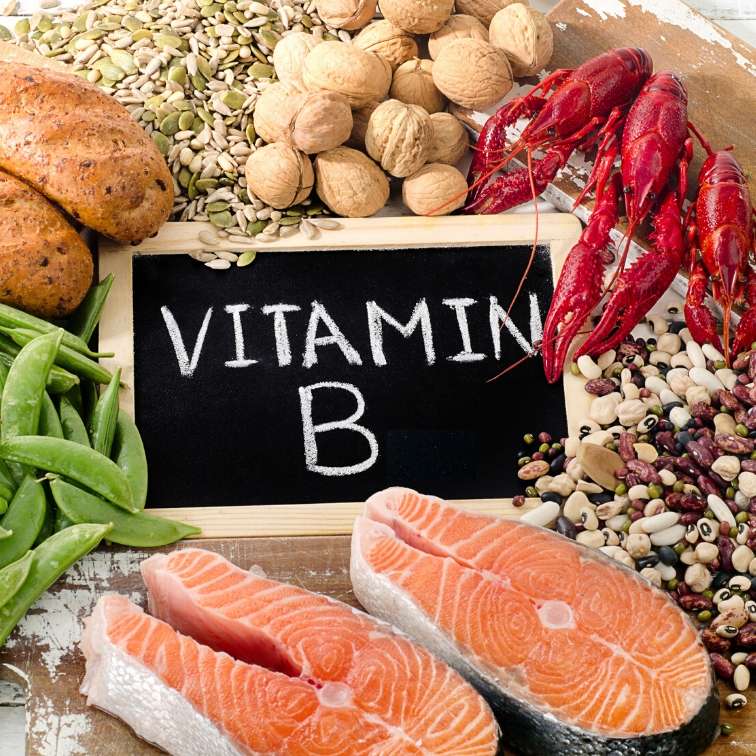
Why Swimmers Need to Protect Against Calcium Deficiency
Managing your nutrition is an important element of being a competitive swimmer. Eating the right foods to maintain your health will not only enable you to perform better in the pool, but will keep you feeling great long after practice is over.
One of the minerals that swimmers often neglect, or sometimes misunderstand, is calcium. A calcium deficiency can lead to problems long term if left untreated. Here you'll learn a bit more about this important nutrient and how it can impact your overall health.

What is calcium deficiency?
Calcium is a vital mineral that your body uses to stabilize blood pressure, build strong bones, and maintain healthy teeth. When you don’t get enough calcium, you increase the risk of developing diseases such as osteoporosis, osteopenia and calcium deficiency disease, also known as hypocalcemia.
Left untreated, hypocalcemia can also signal a condition of the four small glands in the neck, the kidneys, or the pancreas. While most cases have no symptoms, some severe symptoms include muscle cramps, confusion, tooth decay, and heart palpitations.
How will I know if I am calcium deficient?
Of course, it's always best to check with your doctor and have a test for calcium deficiency. But pay attention to some of the warning signs that will give you a clear indication that you need more calcium in your diet.
1. Sleep problems
Calcium is, in fact, directly related to your sleep cycle. As you slumber, calcium levels rise and fall, with higher levels occurring during deep sleep. Studies show that if you're not achieving deep sleep, you could have a calcium deficiency. In this study, researchers found that normal sleep cycles were restored when calcium levels were increased to normal. If you're having trouble sleeping, ditch the sleeping pills and talk to your doctor about getting more calcium in your diet instead.
2. Muscle cramps
Since calcium helps to maintain and regulate muscle contraction and nerve conduction, cramping after a practice or a meet could indicate that you're not getting enough of this important nutrient. It’s important to note that calcium is one of the minerals lost in sweat, so if you find that you're cramping after an intense workout, you may have lost calcium in sweat, leading to muscle cramps. Drinking a recovery drink like NutriBoost with milk is important in eliminating these symptoms.
3. Parethesia
Do you have the symptoms of tingling, numbness, muscle tremors, and/or an impaired sense of touch? Then you might be calcium deficient since low calcium in the blood has been connected to neurological and physical impairment. These muscle tremors and twitches are your body's way of signaling that it needs more of this important nutrient.
Are there different types of calcium?
Of course, most of us probably think of a glass of milk when we hear the word "calcium. But there are actually two different types of calcium. Inorganic calcium, which is usually in the form of calcium carbonate, oyster shell, citrate, is not easily absorbed by the body. In large amounts, this inorganic calcium acts like the “rock” that it is and can accumulate in soft tissues and internal organs, including the arteries, where it can set off a heart attack. This is one of the dangers of taking too much calcium in the form of supplements.
Conversely, organic calcium, or calcium sourced directly from plants, is easily absorbed by the body so large doses are not necessary. This plant form of calcium takes up the inorganic calcium from soil and modifies it via photosynthesis into an organic form.
But whatever form of calcium you're getting, this mineral does not work in isolation. It works in synergy with other nutrients to be absorbed and used by the body. Protein, magnesium, vitamin C, vitamin K, vitamin D and vitamin E work in conjunction with calcium, contributing to the process of building strong bones and maintaining proper calcium levels. Higher protein intake also improves calcium absorption.

How can I get enough calcium?
Before you run out and chug gallons of milk, know that what kind of calcium you ingest really matters! Be aware that foods high in vitamin D and calcium, such as dairy products, can also be high in saturated fat and trans fat. Choose low-fat or fat-free options to reduce your risk of developing high cholesterol and heart disease.
There are non-dairy options that are just as healthy and calcium-rich. These food choices include sardines, greens such as collards, mustard, kale, and bok choy, canned salmon (with bones), calcium-fortified soy milk, fruit juice and cereals, blackstrap molasses, and broccoli. If you take a calcium supplement, it’s crucial that the supplement you choose be bioavailable and easily absorbed. It should also be a fairly low dose, so you are not taking in more calcium than your body can absorb at any given time.
Why is calcium important for swimmers?
Swimmers should pay attention to this important nutrient for all of the reasons above to maintain adequate health. But beyond that, athletic activities usually require maximum muscle response in performance. Having a calcium deficiency has been shown to affect the reliability of the transmission of the body's response signals, impacting your reaction time in competitive situations.
Also, if you're dealing with any of the muscle recovery issues listed above, like cramping, this will negatively impact your swim performance. Don't wait until it's too late and you're sitting poolside in pain. Eat a balanced diet that has plenty of food sources of calcium and speak to your trainer or doctor if you're having any of the symptoms listed above that could indicate a more serious problem.
Taking control of your nutrition and eating right is just as critical as mastering the perfect stroke and kick!
Sources:
http://www.medicalnewstoday.com/ releases/163169.php
http://www.healthline.com/ health/calcium-deficiency- disease# Prevention7
http://www.drweil.com/ drw/u/ART02814/ calcium
http://www.medscape.com/ viewarticle/717046_8










Leave a comment
This site is protected by reCAPTCHA and the Google Privacy Policy and Terms of Service apply.